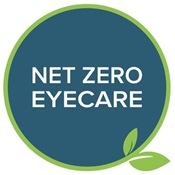Professional Matters Optometry & Dispensing
New rules on capturing a homeless patient’s address
A permanent address is not a legal requirement of GOS for homeless patients
Confirmation that capturing a homeless patient’s address is not required will correct ‘major health inequality’, says the AOP
The Association of Optometrists (AOP) has welcomed an announcement by NHS England, which confirms that patients without a fixed address, including people who are homeless or rough sleeping, have a route to access NHS sight care by proving an alternative address.
In a letter issued to GOS contractors on 3 July, NHS England state there isn’t a legal requirement to provide a permanent home address to receive care under GOS.
The move will mean more patients can access NHS sight tests and will face fewer barriers to eye care by allowing one of a range of addresses to be detailed on a GOS claim form. Those included in the list are the optical practice address, the address of the patient’s GP if they have one, a friend or relative’s address or temporary accommodation.
Welcoming the move, Adam Sampson, AOP Chief Executive, who previously ran housing charity Shelter, said: “This important change will address a major health inequality issue for those people who are homeless or rough sleeping. We have been pushing for this amendment for some time and it marks a real turning point in ensuring the patients who are already struggling receive the help they deserve.
“Despite this positive step, we know that many of those patients on our streets still won’t be able to access NHS sight care and we encourage NHS England to continue to make strides towards more equitable provision for this vulnerable group.”
Karen Gennard, Clinic Development Manager for Vision Care for Homeless People, and AOP Councillor, said the change offers clarification after many years: “We have often used a day centre for an address for people who are homeless. Clarifying this issue for all optometrists and practices will hopefully lead to more practices offering services to this vulnerable group.
“Of course, homelessness encompasses far more than street sleepers; those in hostels, supported accommodation and sofa surfing are also often without secure long term accommodation. Over the years, Vision Care for Homeless People have found that for a variety of reasons only a third of people who are homeless are able to access NHS services and homelessness alone unfortunately is not currently seen as a valid reason for NHS eye care eligibility. We are currently working with those with lived experience to better understand the barriers they face in getting eye care and determine ways in which it can be made more accessible.”
Vision Care for Homeless People provides access through permanent clinics within day centres which are free of charge at the point of service for anyone affected by homelessness. The charity also supports practices wanting to offer services in their local areas.























